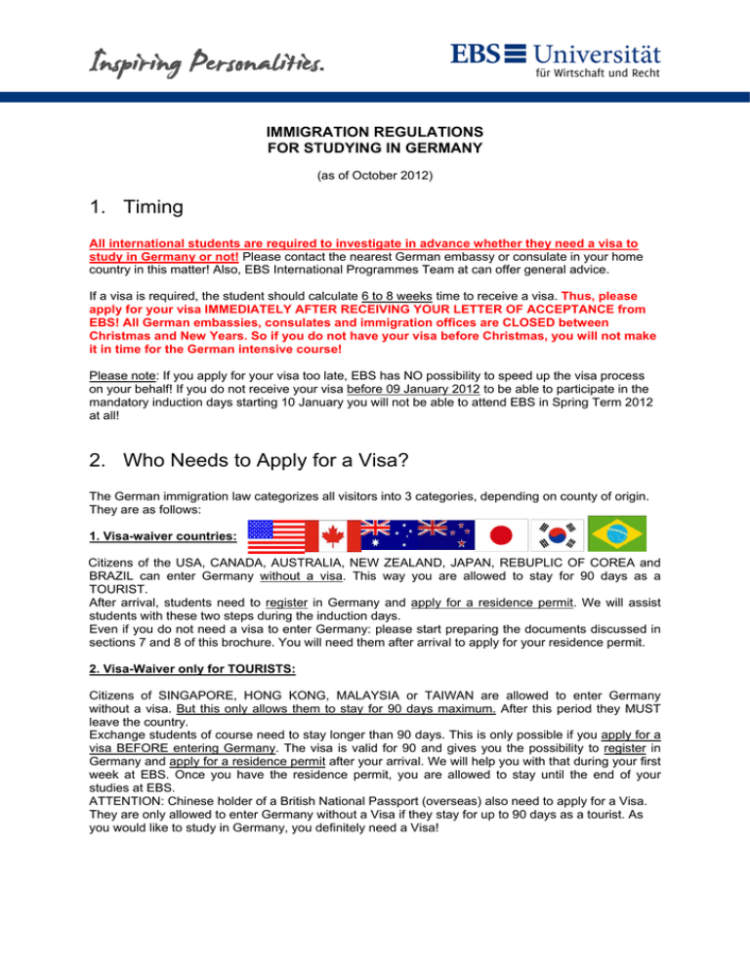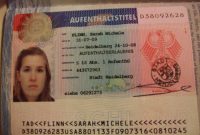Germany has become an attractive destination for students around the world. It is remarkable for its prestigious universities and research facilities, excellent education and diverse career options. With so many opportunities, it may be difficult to understand its study and work regulations. Here we will discuss about the laws, regulations and rules concerning foreign students and workers in Germany.
The German education system is quite complex and holds many advantages as well as restrictions. It is important to understand the significance of study and work regulations in Germany when considering studying or working abroad. You must consider visa and immigration policies, university admission requirements and even the cost of your studies. All these aspects will shape your entire experience in Germany.
Overview of Working and Studying Regulations in Germany
Germany is known for its relaxed laws regarding employment and study regulations. However, if you want to stay in Germany for a longer period of time, you should familiarize yourself with the policies governing study and work in the country. In this article, we will provide an overview of some of the important regulations regarding studying and working in Germany.
Types of Visa to Work or Study in Germany
In order to study or work in Germany, you will need to obtain a visa. There are various different types of visas for different purposes. For example, if you want to find a job in Germany, you will need to apply for a German residence permit. On the other hand, if you want to study in Germany, you will need to apply for a student visa.
Requirements to Work or Study in Germany
In order to work or study in Germany, you will need to fulfil certain requirements. Some of these requirements are as follows:
- You must have a valid passport and all necessary visa documents
- You must be able to support yourself financially
- You must have health insurance coverage
- You must have a valid residence permit
- You must be proficient in the German language
Rights and Obligations of Working in Germany
When you are working in Germany, you have certain rights and obligations. Generally speaking, you have the right to be treated fairly and equitably, as well as the right to a safe and healthy working environment. You also have the obligation to follow the regulations and laws of the German government.
Taxes for Working or Studying in Germany
When you are working or studying in Germany, you may be subject to taxation. Depending on your situation, you may be eligible for certain tax breaks or deductions. You should consult with a tax advisor to find out what your tax obligations will be.
Immigration Process for Working and Studying in Germany

Germany is a great place for studying and working due to its economic strength and high standard of living. However, if you want to pursue a professional career, or study, it is important to understand the immigration process. Here’s a comprehensive guide to the regulations and requirements you’ll need to meet in order to work or study in Germany.
Work Permit
Before arriving in Germany, you will need to obtain a work permit from the German Federal Employment Agency. You are eligible for a work permit if you are an EU citizen, resident from a non-EU state, or a family member of a German citizen. Obtaining a work permit requires providing a variety of documents to the agency, such as your CV and passport. Additionally, you may be expected to have necessary skills and qualifications, depending on the type of job you are applying for.
Residence Permit
Obtaining a residence permit is a mandatory requirement for anyone planning to stay in Germany for more than 90 days. The residence permit is valid for one year and can be renewed depending on your circumstances. To apply for a residence permit, you must provide your valid passport/travel document, your valid visa, and a valid health insurance policy. Other documents may be required, depending on the purpose of your stay, such as a marriage certificate or proof of rental agreement.
Student Visa
If you are planning to study in Germany, then you will need to apply for a student visa. The documents required for a student visa include:
- Valid passport/travel document
- Proof of English language proficiency (IELTS/TOEFL)
- Proof of admission to a German university/college
- Proof of financial resources to cover the costs of living and studying
- Health insurance policy
Conclusion
It is important to understand the immigration process before arriving in Germany. It can be a bit confusing, but with the right information and documents in hand, you should have no difficulty obtaining the necessary permits to study or work in Germany. Good luck!
Available Financial Support for Working and Studying Abroad in Germany
Getting ready to study and work abroad in a popular destination such as Germany? The country provides many opportunities for international students and working professionals who want to develop their skills and discover new cultural insights. However, the cost can quickly add up. That’s why Germany offers various financial support options for those looking to study and work abroad.
Here are some forms of available financial support for working and studying abroad in Germany:
Scholarships
The German government awards Erasmus+ grants every year, which allows students from all over the world to study in Germany for up to two years. Many universities and research institutions also offer their own scholarships for international students, covering everything from tuition fees and health insurance to living expenses. For those interested in conducting research, the Deutsche Forschungsgemeinschaft (DFG) provides grants and funding.
Employment Opportunities
Working while studying abroad in Germany can help supplement your income and cover living expenses. International students are allowed to work 120 full days or 240 half days per year. Working immigrants in Germany must first obtain a residence permit or a “Grenzgänger” permit, depending on their nationality and the duration of their stay. Job opportunities include teaching and research assistantships, seasonal jobs, and English-speaking jobs.
Research Fellowships
The Alexander von Humboldt Foundation offers fellowships for researchers from all disciplines, including natural sciences, social sciences, economics, and humanities. Researchers must be highly qualified and have the intention of working with a specific host researcher at a research institution in Germany. The fellowship amount varies based on the researcher’s qualifications and funding if applicable.
Exchange Programs
Exchange programs allow students to study abroad for a limited amount of time while paying tuition fees to their home universities. Popular exchange programs for studying in Germany include the Erasmus program and the Mobility Exchange program. Exchange students may be qualified for a student loan to cover living expenses while they are abroad.
Conclusion
To sum up, the regulations for study and work in Germany offer a comprehensive set of rules to properly protect both local and international workers and students, while still taking into account the cultural diversity of its population. This provides an overall stable and fair employment environment, and requires a solid understanding of the legal framework in order to ensure that everyone is abiding the rules and rights.
Therefore, it is essential that the proper research is conducted before starting any activity in Germany in order to be well aware of the laws and regulations that are applicable. Doing this will help anyone looking to study or work in Germany navigate the country’s complex legal system and make the right decisions.




